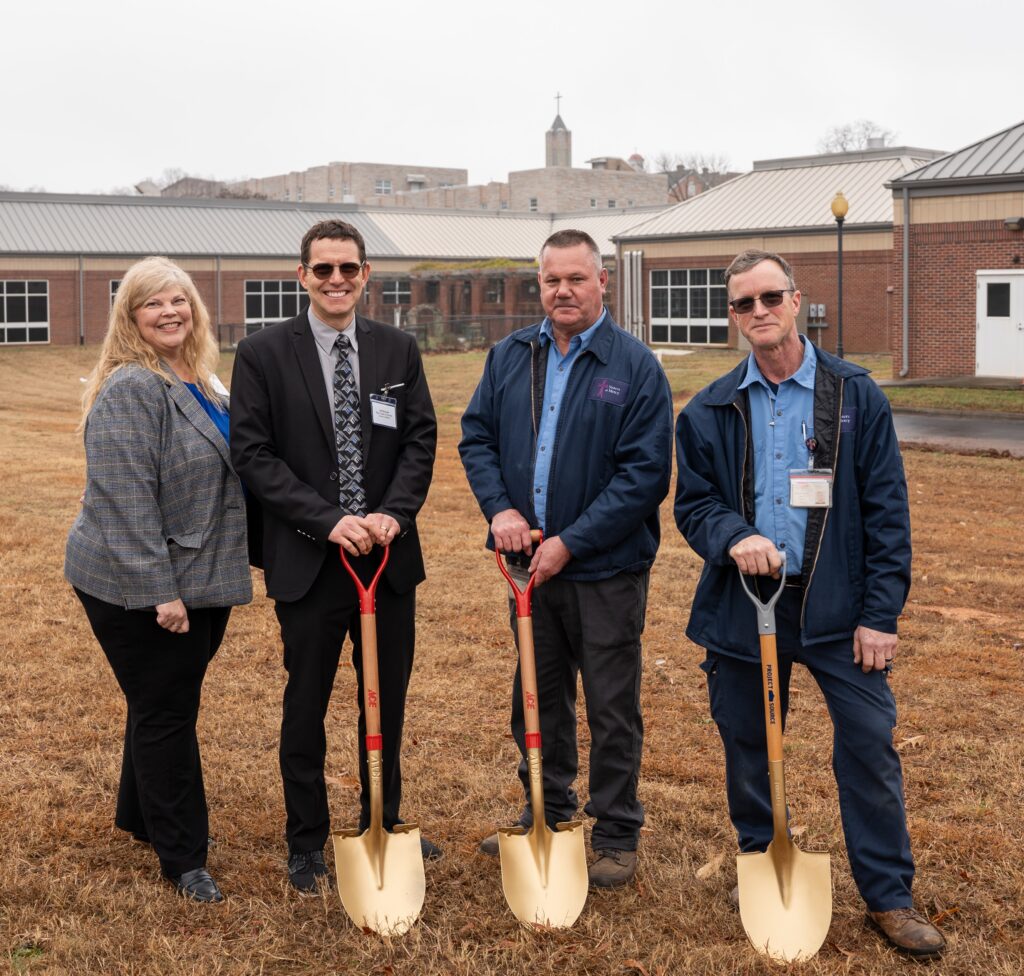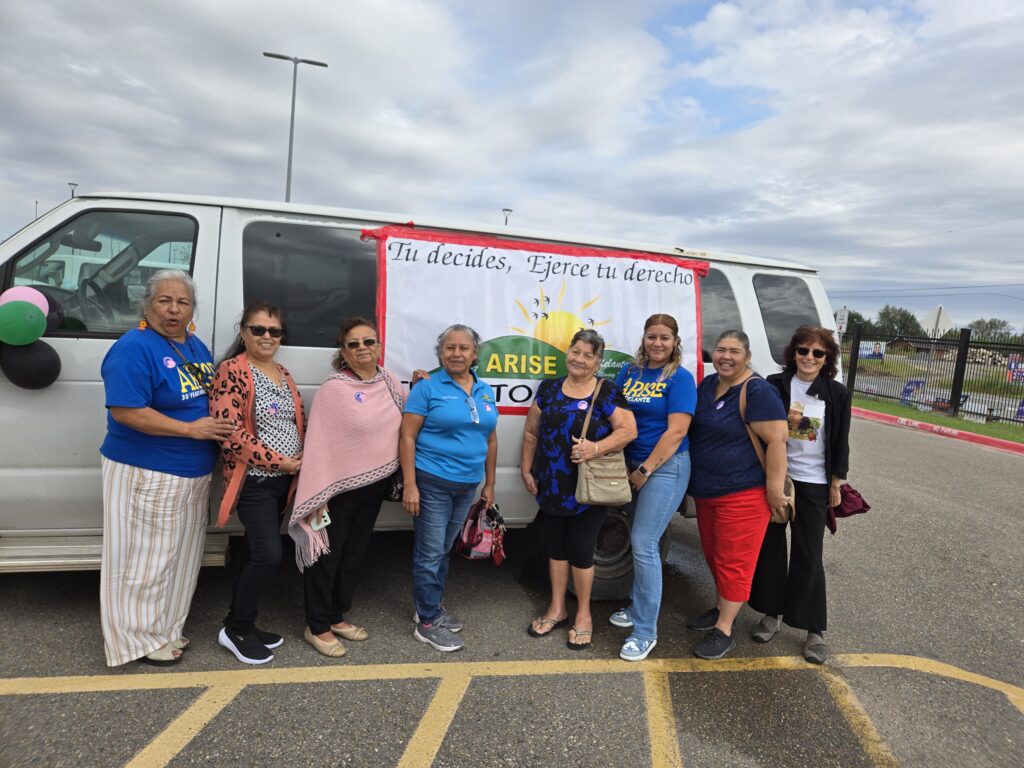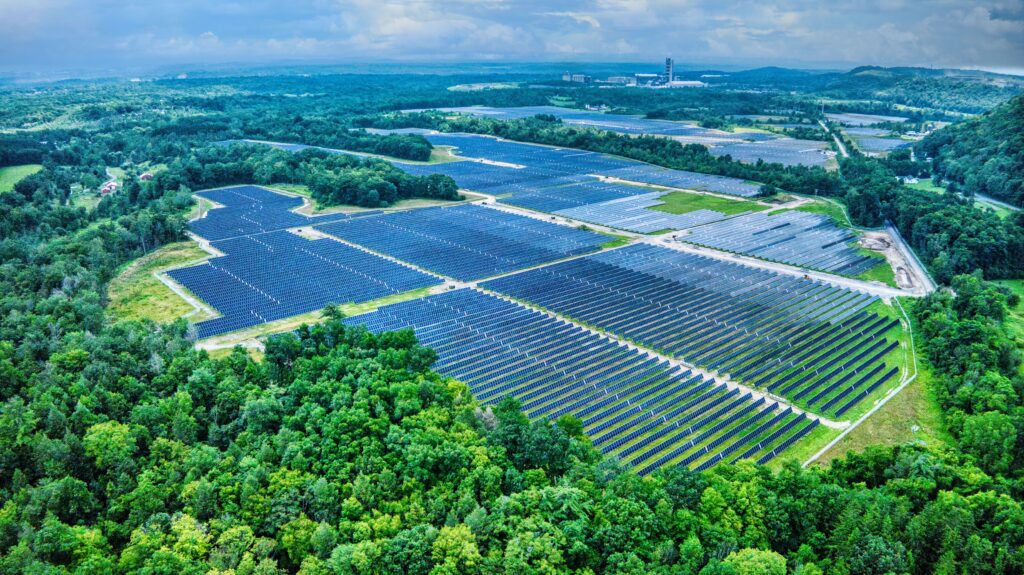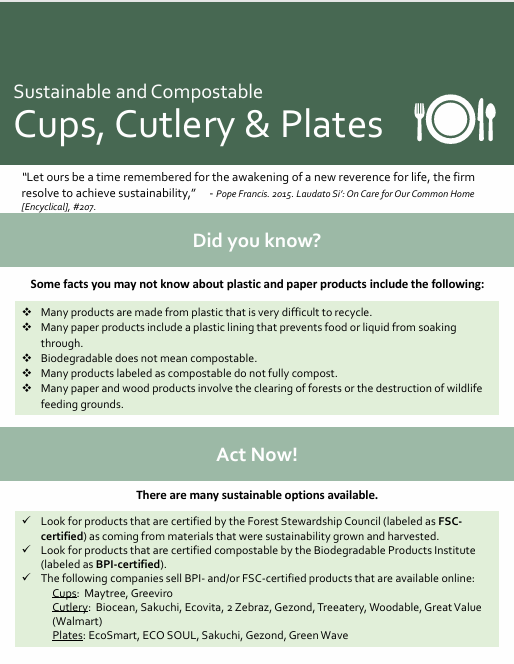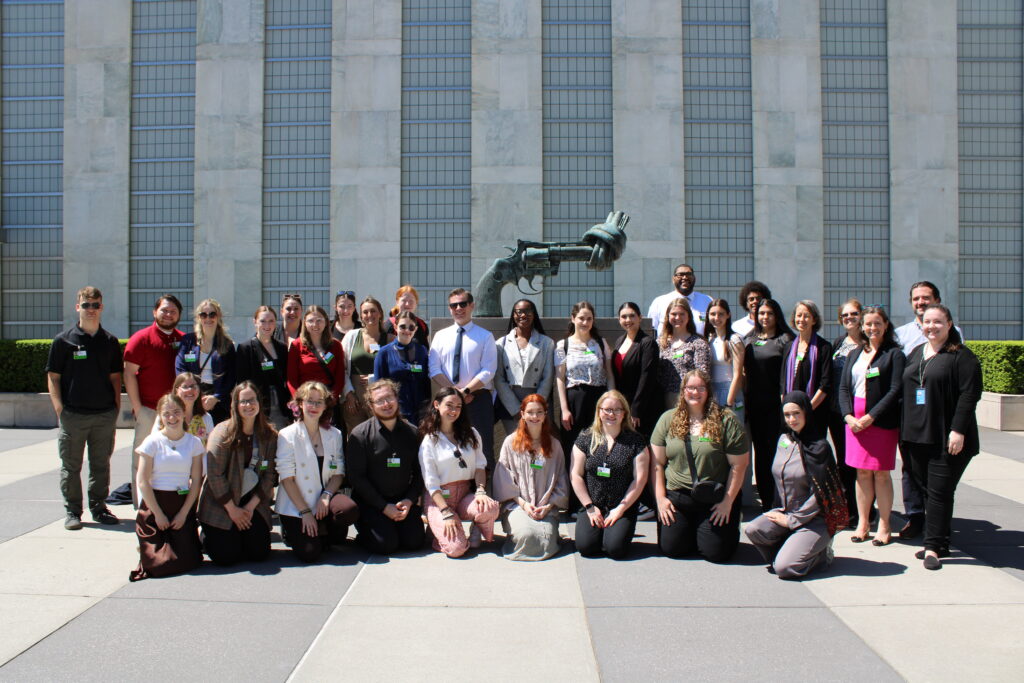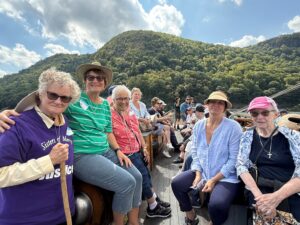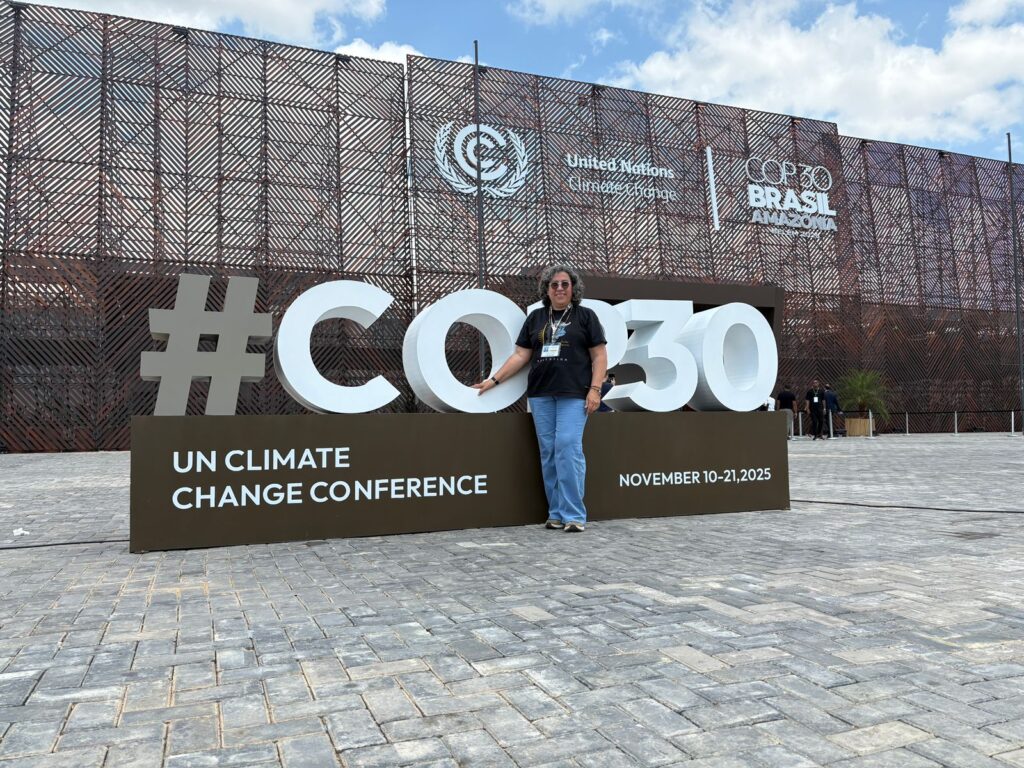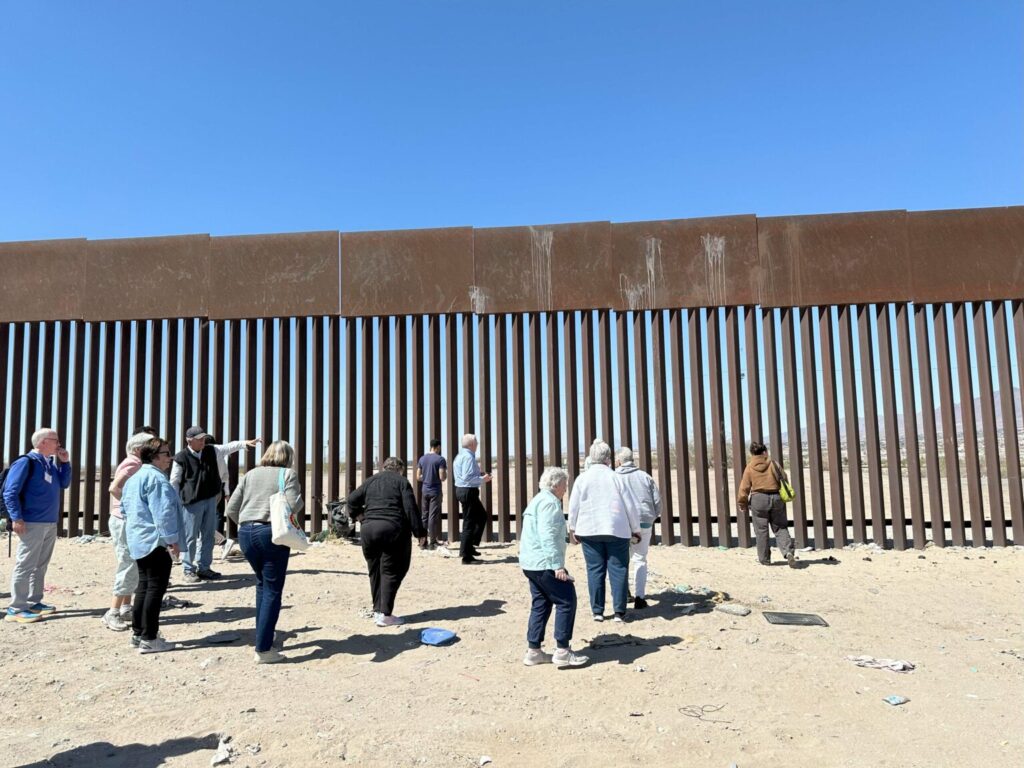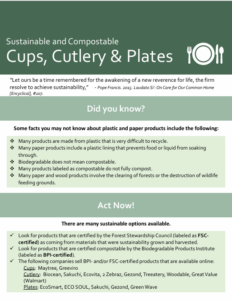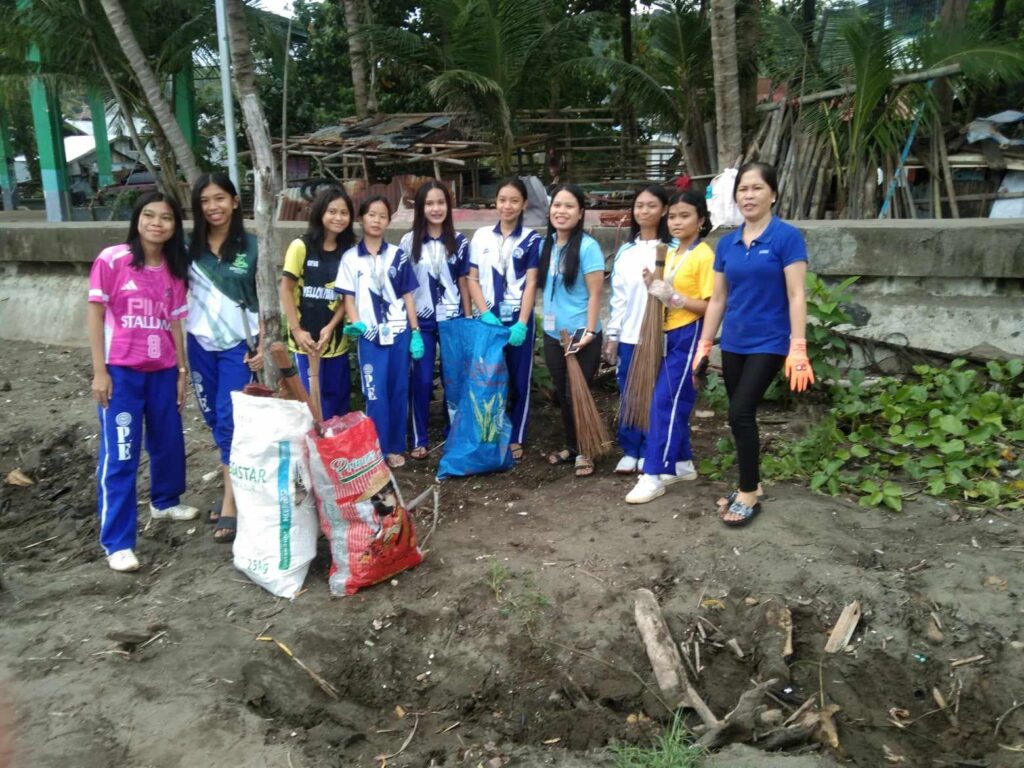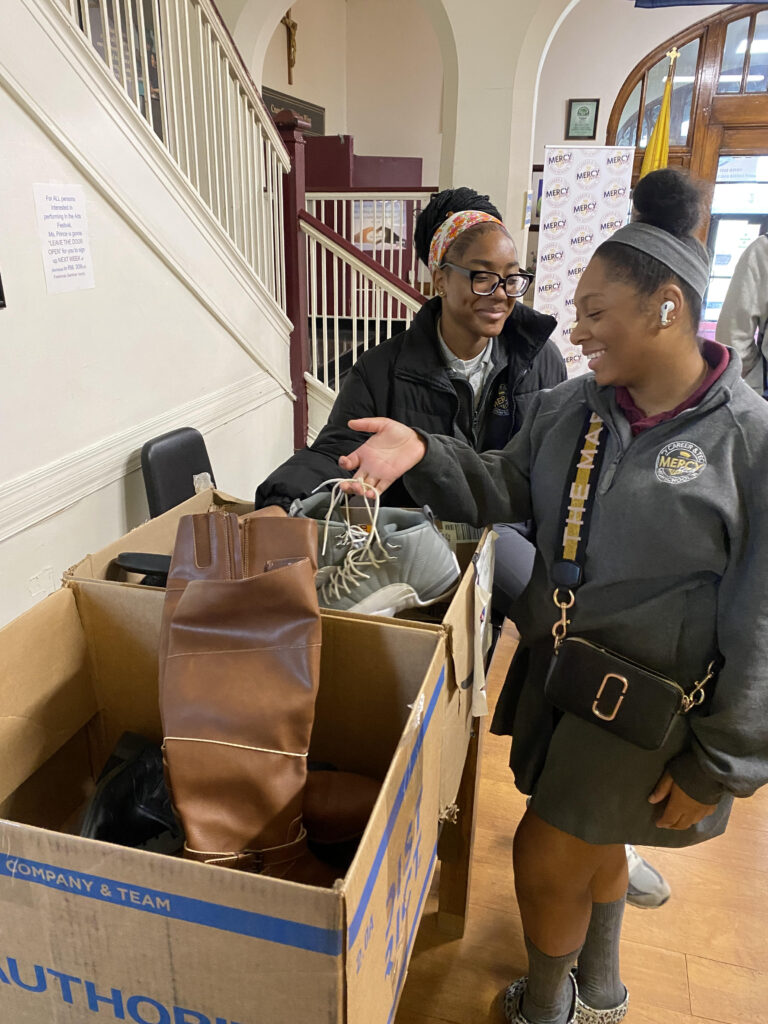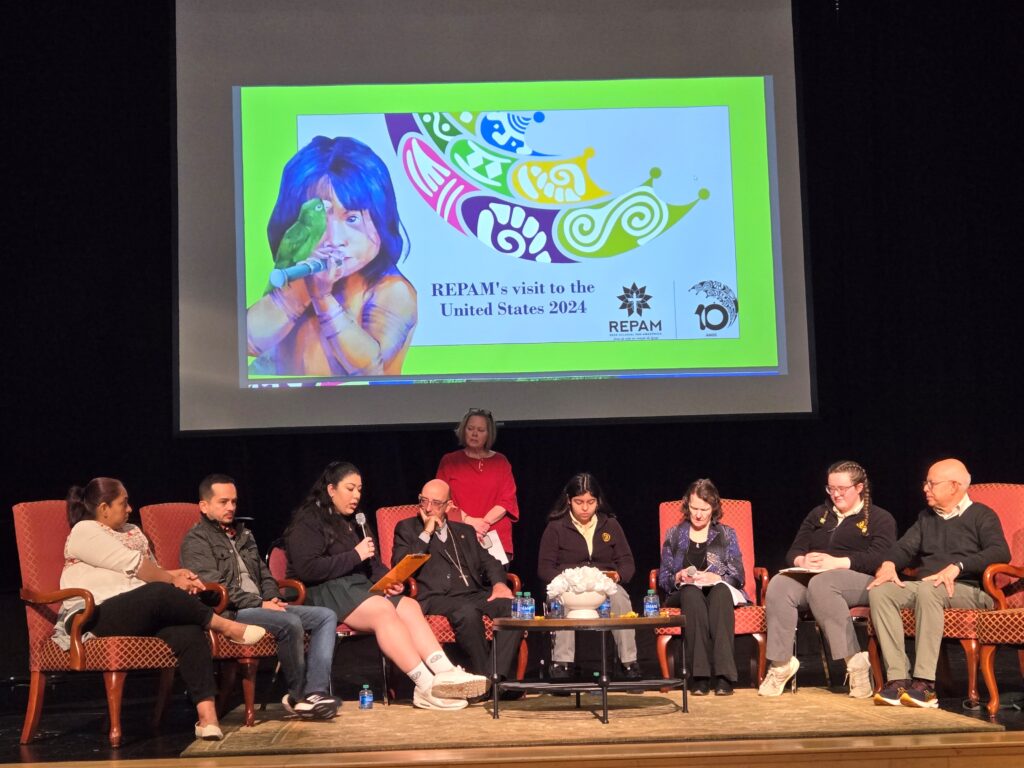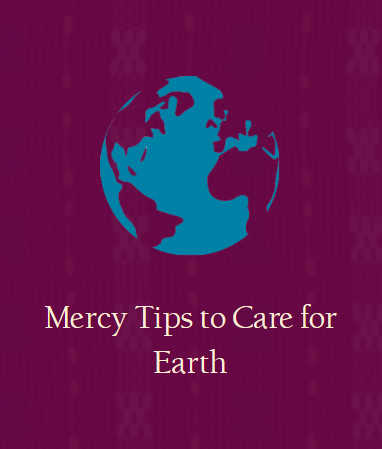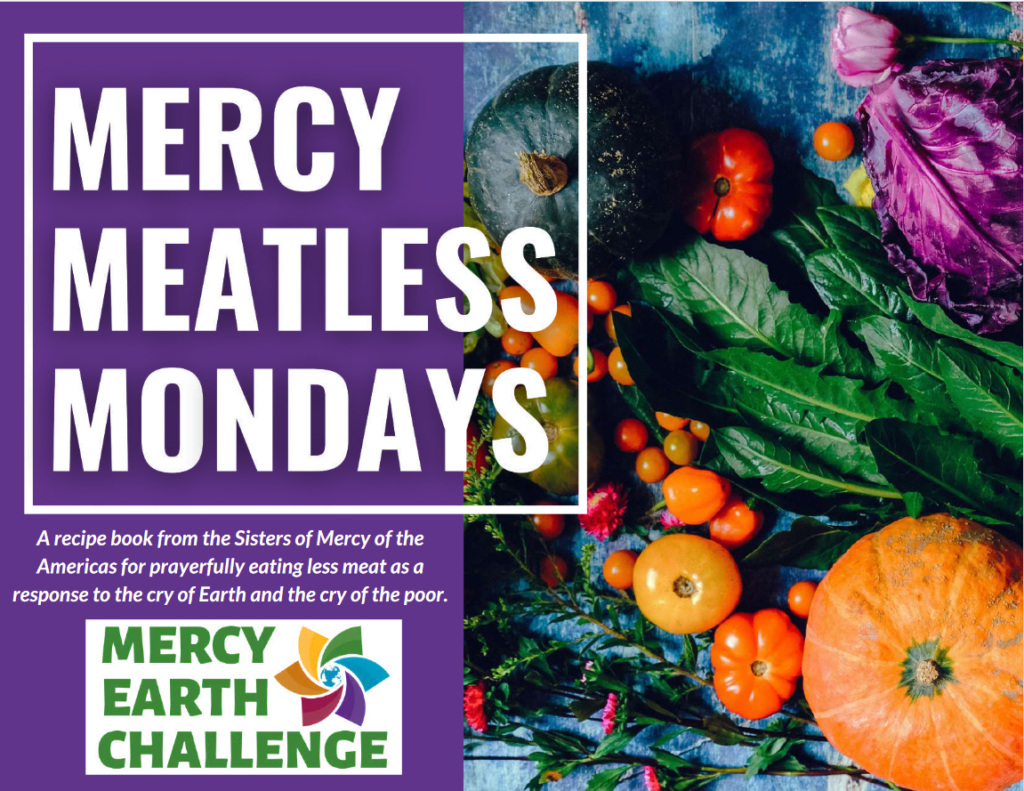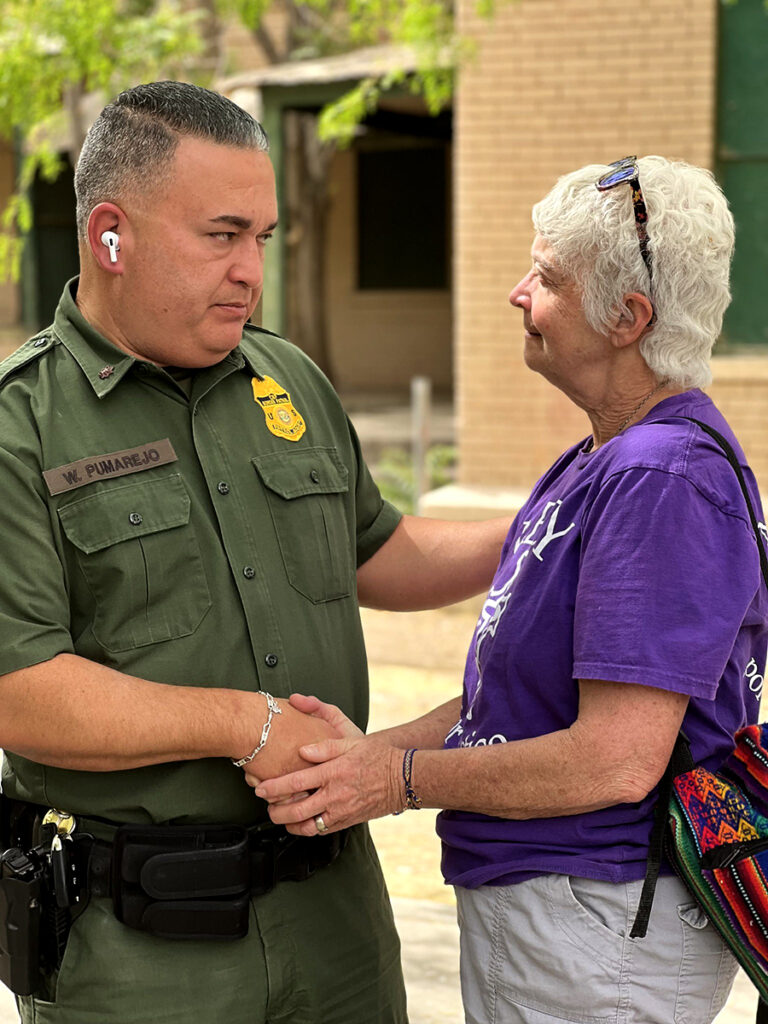January 2026
Articles from Mercy:
- • Critical Considerations: Is history repeating itself in Venezuela? (Karen Donahue, RSM)
- • U.S. withdraws from UNFCCC (Marianne Comfort; Institute Justice Team)
- • Critical Concerns in Focus: Immigration (español) (Mike Poulin; Institute Justice Team) [February edition preview]
Local Justice News & Upcoming Mercy Events
- • Hope in Challenging Times (Daniel Horan, PhD, Feb. 12 6:30 p.m. CT)
Justice Resources & Links
Critical Considerations
Is history repeating itself in Venezuela?
Karen Donahue, RSM
The Trump administration’s January 3, 2026 attack on Venezuela and the kidnapping of its president and his wife, extraditing them to the United States to face drug trafficking charges, is just the latest chapter in the long history of U.S. intervention in Latin America [a.k.a. Abya Yala]. Beginning with the Monroe Doctrine in 1823, the U.S. has viewed the Western Hemisphere as its exclusive preserve, often thwarting the dreams and aspirations of local populations.
In a recent article published in The Nation magazine, Eric Ross, an organizer, educator, and PhD candidate in the history department at the University of Massachusetts–Amherst, examines the history of U.S./Latin American [Abya Yala] relations and notes that they have been characterized by “immense profits for the few and violence, political upheaval, social dislocation, and economic devastation for the many.” He said that even though movements have challenged U.S. imperial ambitions, “these have repeatedly been forced back into the subordinate position assigned them in a global capitalist order designed to benefit their not so good neighbor.”
Ross goes on to examine three cases of U.S. intervention and the detrimental impacts they have had. They are:
• Cuba, where the 1901 Platt Amendment gave the U.S. “substantial control over the Cuban treasury and the ability to intervene whenever the United States deemed it necessary to safeguard its arbitrarily defined notion of what constituted Cuban independence.”
• Guatemala, where a 1954 coup, engineered by the United States at the behest of the United Fruit Company, thwarted a land reform program that would have helped millions of landless peasants. “The civil war that followed claimed more than 200,000 lives, including a genocidal campaign against the indigenous Ixil Maya people, carried out with direct U.S. support.”
• Chile, where the U.S. considered the 1970 election of socialist president Salvador Allende intolerable. “His program called for the nationalization of strategic industries, the expansion of healthcare and education, the strengthening of organized labor, and the dismantling of entrenched monopolistic landholdings.” President Richard Nixon and National Security Advisor Henry Kissinger feared that a “successful socialist state achieved through the ballot box risked demonstrating that another political and economic path was possible.”
Ross concludes by saying that “independent powers in this hemisphere going their own way were the threat that Washington and Wall Street could never tolerate. It’s the same reason the United States is once again maneuvering toward open conflict in Venezuela. To proceed down such a path will, of course, mean reenacting some of the most catastrophic chapters of U.S. foreign policy.”
U.S. withdraws from UNFCCC
Marianne Comfort; Institute Justice Team
The U.S. will be even more isolated on the international stage once President Donald Trump’s executive order withdrawing the country from 66 international bodies goes into effect. This is particularly true in regard to global engagement on climate change.
The directive includes a withdrawal from the U.N. Framework Convention on Climate Change, a 34-year-old treaty signed by all countries in the world that provides the foundations for ongoing global negotiations to address the climate crisis. The U.S. Senate unanimously ratified the treaty in 1992. It’s unclear if the president has the authority to unilaterally withdraw the country from a treaty.
The Trump Administration early in its term had announced exiting the Paris climate agreement, and that goes into effect Jan. 20th. Withdrawal from the global climate treaty will take effect a year after giving formal notice to the United Nations. The U.S. will then be the only country in the world not participating in global efforts to address climate change.
President Trump’s executive order also withdraws the U.S. from the Intergovernmental Panel on Climate Change, the scientific body that provides regular assessments on climate change and the potential impact of mitigation and adaptation strategies.
Many of the Mercy Justice Team’s Catholic partners have expressed great dismay at the administration’s withdrawal from these two bodies.
Critical Concerns in Focus: Immigration
Mike Poulin; Institute Justice Team
As it has for decades, the Mercy Community continues to stand in solidarity with and minister to immigrants and immigrant communities, including being present at recent protests and demonstrations.
Mercy’s migrant ministry is carried out by sisters, associates and sponsored works across the United States. Below are recent examples of efforts to address the Critical Concern for immigration.
In San Diego, Sister Mary Waskowiak regularly accompanies migrants to their court hearings, where her status as a Catholic Nun has, at times, carried weight with one judge. She continues her work through Casa Misericordia in collaboration with the Pope Francis Center, a new parish-based organization that offers legal resources, social services, and emotional and spiritual support to immigrants. To learn more about her work in Southern California, read Sister Mary’s op-ed in the San Diego Tribune in December of 2025, or watch this video interview from 2023, featuring her and Sister Mary Kay Dobolvrony.
In Michigan, Sister Pat Lamb helped to start—and continues to serve with—the Strangers No Longer network, a coalition of faith communities committed to advocacy and direct support for immigrants in local communities. Sister Pat works closely with families in need and recently spoke at an in-service for Mercy High School staff in Farmington Hills, addressing immigration as a critical justice issue.

In the Philadelphia area, Sister Anne Connolly collaborates with members of the Jewish community on a project called Welcoming Homes, a small organization with strong connections to local shelters where unaccompanied migrant youth can live until they turn 18. Sister Anne reports, “We have found homes for 15 youth as an alternative to them being released to adult jail. We have found amazing hosts who open their homes and their hearts to these kids. School, medical care, and legal protection are top priorities. A recent arrival from Guinea and another from Guatemala are my main focus during cold winter months.” Sister Ann talks about how her time living on the U.S.–Mexico border informs her work in Pennsylvania in this 2023 video interview.
In Portland, Sister Pat Pora continues to accompany immigrants, reporting many are now absent from church due to fear of ICE. In response, the food pantry program has been making deliveries, and some schools are teaching remotely so children can remain safe at home. The spiritual community at large has been a resource for many of these communities, providing free legal training and family support. Read about Sister Pat’s work in her own words in the second half of this article.
Mercy Associate Joanne Castner participated in a Mercy-sponsored immersion trip to the U.S.-Mexico border three years ago. Since then, she has made it her mission to educate people in Pennsylvania regarding the plight of immigrants. To date, Joanne has delivered 33 talks, reaching more than 800 people. She has been welcomed to speak in communities that span the entire political spectrum.

In the San Francisco Bay area, Sisters Joan Marie O’Donnell, Judy Carle and Deborah Watson are active with advocacy groups that support immigrants. In January of this year, they participated in a two-day, multi-faith vigil and fast that included a rally to support Guillermo Medina Reyes as he prepared to appear in San Francisco federal court. Guillermo, who had been brought to the United States at the age of 6, was seeking to avoid being returned to detention. Their advocacy also includes efforts to close immigration prisons and prevent new facilities from opening. They are currently focused on opposing a prison that could house as many as 2,500 people and is operating illegally without the required permits. Sisters Judy and Joan also involve other sisters in writing letters of support to immigrants who are being held in detention. Last March, their work was featured in this article and further discussed in a September 2023 video interview.
Sister Rosemary Welsh continues her decades-long ministry with immigrants near the United States border with Mexico. Among their most urgent needs are meals at shelters and legal referrals for long-time area residents who don’t have legal status. Learn more about Sister Rosemary’s work in this video interview.
The Vermont Mercy Social Justice Committee hosted a public informational session on February 1, featuring representatives from Migrant Justice and the Vermont Afghan Alliance. Approximately 30 community members attended to learn about the organizations’ programs and the current challenges facing migrants in the community. On February 6, Vermont sisters and associates participated in a peaceful vigil organized by Vermont Faith Communities outside the courthouse in St. Albans in support of Steven Tendo, a Ugandan asylum seeker, pastor, union member and torture survivor. The vigil was originally planned to accompany Tendo to his ICE check-in. However, he was detained by ICE several days before his scheduled appointment.
In a recent Global Sisters Report article, Sister Mary Jo Baldus described the fear affecting immigrant communities and protesters in Winona, Minnesota, a community located about two hours south of Minneapolis. Mercy Associate Christine Wilde, who lives in northern Minnesota, has taken part in protests against ICE actions with her local Indivisible group. When the local Mexican restaurant closed for several days out of fear of ICE raids, her group offered support to the proprietors.
Sisters and associates in Rhode Island have played a role in the Diocese of Providence’s new immigration initiatives, including the formation of a Migration Commission and praying the rosary outside of the ICE detention center in Central Falls with Bishop Bruce Lewandowski. The Institute Justice Team also has been involved with the Immigration Coalition of Rhode Island, gatherings faith leaders around the state to prepare for a surge of immigration enforcement and advocating on several immigration-related bills in the state legislature. Up until recently, Sisters Ann McKenna and Mary Pendergast taught a course through the Diocese of Providence to prepare immigrants for the citizenship test. The recent trimester was cancelled because not enough people are coming to classes anymore due to fear in the community.
Margie Rudnik, a member of the Chicago Mercy Justice Committee, has organized associates to address immigration concerns. In collaboration with the SHARE Foundation, Margie and other associates are fundraising to support Foro de Mujeres por la Vida in Honduras, a collaborative of 15 organizations dedicated to women in Honduras. The aim is to make the country safer for women, so they don’t feel immigration is their only way to escape dangerous situations. “Safety for Those Who Stay” is the theme of the fundraising campaign.
Sisters in New Hampshire, including Eileen Brady, Rosemary Burnham, and Nat McDonough, participate in monthly vigils at the federal building in Manchester where ICE interviews take place. These vigils are interfaith and include a “Jericho Walk” around the building to raise awareness. Associate Sharon Dalton recently traveled to El Salvador and Honduras with the SHARE delegation and is working to host an Associate from Honduras in the New England area this spring.
In Connecticut, Sisters Betty Secord, Cecilia Baranowksi, Sue Keefe, Pam Michaels, Nancy Audette, and Mary Alice Synkiewicz volunteer with the Hartford Deportation Defense in collaboration with other immigration groups. Trained to understand the court proceedings and immigrants’ rights, they accompany immigrants to court hearings and ICE check-ins.
Saint Xavier University in Chicago will pilot the first Justice Roadshow in March of this year. Co-sponsored by the Institute Justice Team and the Conference for Mercy Higher Education, the roadshow will feature a week of campus activities centered on the theme of immigration. Planned activities include a service project; a “know your rights” seminar; a panel discussion on local immigration efforts; and a prayer service.
Article Archive
2026
February
Critical Concerns in Focus: Immigration (español)
January
Critical Considerations:
(click years to expand)
2025
December
The Catholic Church responds to the threat of authoritarianism
Critical Considerations:
The United States: global citizen or global pariah?
November
Critical Considerations:
NSPM-7: Countering or perpetrating political violence?
Advocating on harms of extractive industries
Argentina y el avance del colonialismo / Argentina and the advance of colonialism
October
Critical Considerations:
Is it time to reform the Insurrection Act?
COP 30 in the Amazon & Raising Hope in Rome
The dangers of falsely linking Tylenol to autism
September
Mercy sisters call for urgent defense of immigrants
Critical Considerations:
What is Posse Comitatus all about?
Everyday pilgrimages: the Earth is the Lord’s
August
Critical Considerations:
Are we doomed to a perpetual nuclear arms race?
Love and care of creation in local ecologies
Church document ahead of COP30
July
Critical Considerations:
What’s at stake in Israel’s destruction of Gaza?
Have you heard of Black August?
DEI—Diversity, Equity, and Inclusion
Mercy Life Gathering in Panama
June
Vampires, Sharecropping, and the Real History of Juneteenth
Protecting Children and Vulnerable Adults from Abuse in the Philippines
Critical Considerations:
What’s really driving border enforcement?
May
Critical Considerations:
April
Critical Considerations:
Water extractivism in Palestine
March
Critical Considerations:
Who benefits from tax cuts? Who pays?
NETWORK webinar on U.S. federal policy
February
National declaration of emergency in Bajo Aguán
Critical Considerations:
Has the United States declared war on immigrants?
January
If you make a mess, clean it up! (Advocacy success in NY)
Youth claim climate victory in Montana court
Critical Considerations:
2024
December
Critical Considerations:
Is the United States becoming a plutocracy?
November
Critical Considerations:
What happened on November 5, 2024?
October
Overturning the Chevron deference
Critical Considerations:
Who are the Israeli settlers and what motivates them?
Assassination of Honduran water protector deeply grieves Sisters of Mercy
September
God walks with his people: National Migration Week September 23–29
Critical Considerations:
What does CEO compensation say about corporate priorities?
Anxiety – election season can heighten it!
August
Critical Considerations:
What is Project 2025 all about?
Working to stop weapon exports to Haiti
Participating in Elections, part 2
July
Critical Considerations:
Is there a better way to spend $91 billion?
Education, Agriculture, & Emigration in the Philippines
Participating in Elections, part 1
June
Critical Considerations:
Are we creating a prison-industrial complex?
Mercy student videos address the Critical Concerns
May
Critical Considerations:
Degrowth is the only sane survival plan
Argentina and the government of hate
Listening to a chorus of voices
April
Critical Considerations:
An Israeli Jesuit reflects on war in the Holy Land
Advocacy Success! Expanded Background Checks for Gun Sales
March
Military spending and national (in)security
February
The challenge Gaza war presents for American Jews
January
Gaza war threatens credibility of West’s commitment to human rights and the rule of law
2023
December
Climate Summit fails to adequately respond to gravity of climate crisis
November
Critical Considerations:
The dangers of conflating Anti-Zionism and Antisemitism
Red flag laws in jeopardy: faith voices speak to save them
October
Jewish and Palestinian perspectives on Gaza crisis
September
U.S. China tensions impact efforts to address climate change
August
When Good Economic Policy Isn’t Enough
July
States Move to Weaken Protections for Child Workers
June
Corporate Lobbyists at Climate Talks
May
Electric Vehicle Transition Challenges
April
Repudiating the Doctrine of Discovery
March
February
The Rise of Christian Nationalism
January
2022
December
How Corporations Took Over the Government
November
The Independent State Legislature Theory Explained
October
Local Justice News & Upcoming Events
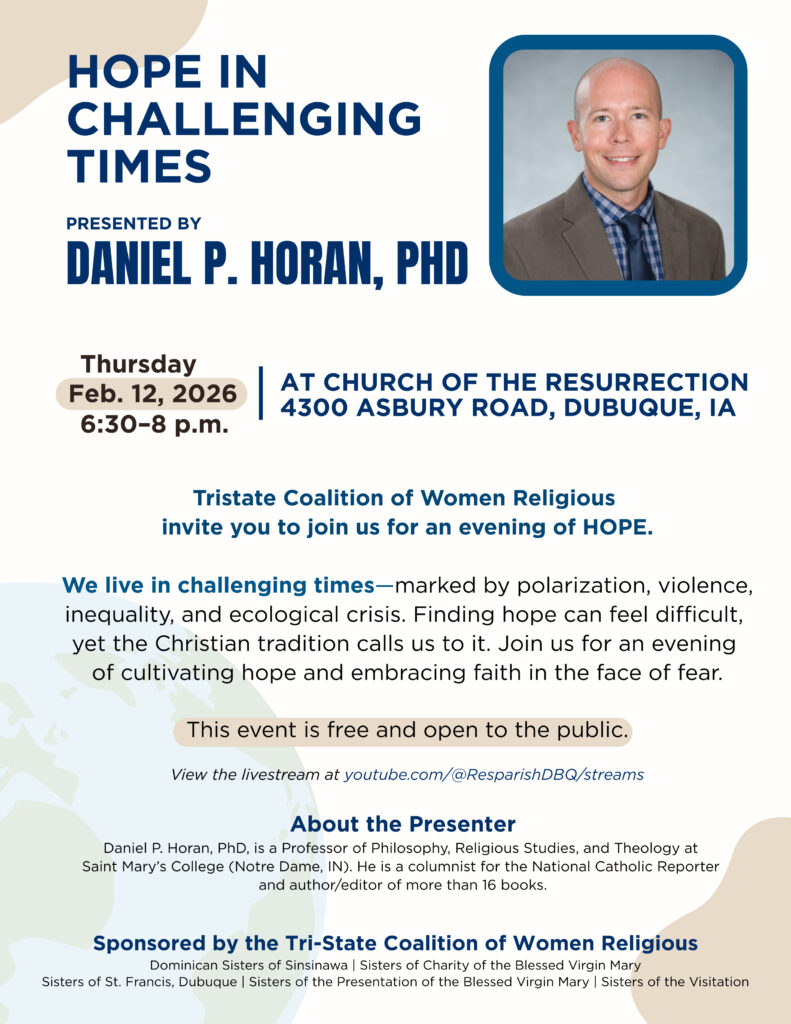
Justice Resources & Links
Mercy Justice Resource Pages
- Resources for Immigrants
- Advocacy Amplified! (Mercy Justice Videos on advocacy tools)
- Mercy Walks with Migrants (interviews with Mercy sisters on immigration work)
- Mercy Tips to Care for the Earth
